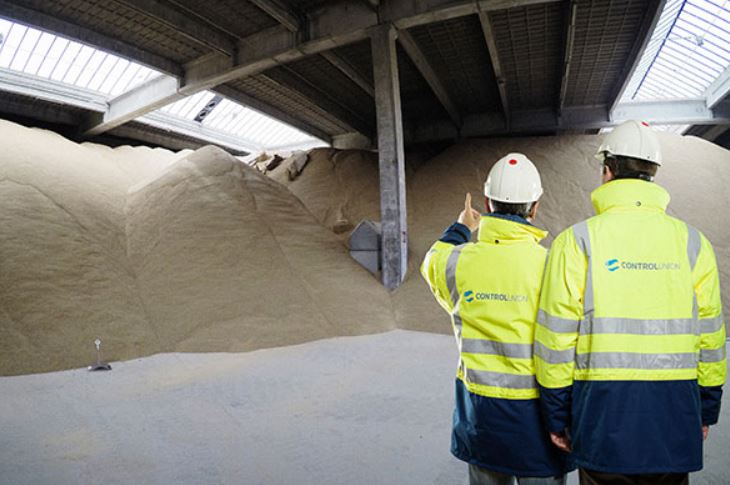Collateral Management Services (CMS): Reducing risk in trade

By the time many businesses realise they need Collateral Management Services (CMS), it can already be too late. That warehouse full of rice has spoiled, leading to unsecured losses. Tonnes of sugar have been replaced with sand, degrading cargo value by millions. A shipment of steel slabs has been stolen from storage, causing ripples along the entire supply chain.
Any one of these scenarios, and a thousand others, do more than cause an immediate loss to the business. They can disrupt cash flow, impede other deals in the pipeline, or lead to severe reputational damage.
And all are avoidable through effective CMS – including stock monitoring (soft collateral), collateral management (hard collateral), and spot checks on a nomination basis. The choice depends on the level of risk, location, and individual risk appetite.
What is collateral management?
CMS is an independent, third-party service that provides critical risk mitigation and asset assurance in commodities transactions. By acting as a neutral intermediary, it offers a safety net to all parties involved — buyers, sellers, and financiers. Depending on the specific risk profile of a transaction, collateral management solutions are tailored into three main categories: stock monitoring agreement (SMA), which involves regular monitoring and reporting of stock levels; collateral management agreement (CMA), which ensures full custodial control over the pledged assets; and nomination base spot checks, which involve selective, ad-hoc inspections to verify the existence and condition of commodities and/or warehouses. By offering flexible levels of control and oversight, CMS supports more secure, transparent, and efficient trading relationships.

It’s impossible for companies to undertake round-the-clock surveillance of all assets in which they have a stake. It’s this ‘overseer’ role that collateral management fulfils via a portfolio of different products, tools and processes. Many collateral management services involve testing, inspections and certifications (TIC) activities – which together strengthen certainty and security in the sometimes volatile world of global trade.
In any commercial arrangement there is typically an interested party in need of protection and a party that represents a risk to those interests. Depending on the structure of the deal and the perceived risk, different levels of collateral management — from light monitoring to full custody — can be tailored to fit the transaction.
Four key factors
There are typically four key factors used in collateral management to evaluate the risks and determine the most appropriate mitigation solutions:
- Geography: Where is the commodity located? Is the local currency stable? How strong is the rule of law? Will the climate of the country have a negative effect on product storage? Regional variances matter. Mature economies generally offer more favourable structures because risk perception is relatively low. In developing regions, however, more robust structures are needed with stronger legal frameworks and higher liabilities.
- Characteristics of the borrower or risky party: What is the trading history of the business being scrutinised? How sound is its financial footing? Which laws and obligations is it governed by?
- Storage conditions: Are warehouses used for product storage properly monitored and secured? Do they have access to the kinds of technology, such as temperature control equipment, that can preserve goods and prevent their value declining? Which jurisdictions will the collateralised asset pass through or be held in? Are any third parties involved in moving or storing the assets, and are they equally verifiable and liable to redress?
The product: Is the product nonperishable, or prone to quality decay and a corresponding drop in value? If the latter, what conditions need to be satisfied to ensure its conservation if in storage, or timely delivery if in transit? Is it easy to steal, substitute or dilute? Does the asset have a reliable price point, or a wildly fluctuating value which could affect its worth? Cocoa, for instance, soared from US$ 2,000 per metric tonne to US$ 10,000 in just over two years earlier this decade.
Comprehensive CMS is no mere box-ticking exercise. An evaluation of four key factors — geography, party profile, storage conditions, and product characteristics — informs whether a transaction requires soft collateral monitoring, full collateral custody, or spot verification. In high-risk transactions, such as those involving warehouse financing, CMS may include measures like daily inspections, physical sampling, custody of the cargo and continuous third-party monitoring to ensure asset security.
Services are adaptable to the specific characteristics of the commodity in question. Steel slabs, for instance, do not decay and are easy to track, but have a high per-unit value in the event of accident or misdeed. Contrastingly, consumables such as grains, beans and tea are comparatively low in value per unit but are much more prone to frauds via theft or substitution. The collateral management profile of each asset is, therefore, unique.
Advances in tech
Like any dynamic profession, collateral management evolves with time. As with many industries, the latest advances are being driven by new technology, such as satellite imagery for monitoring crops in the field or laser scanners for stock checks in warehouses. New technologies such as these and many others provide a vital layer of additional security. They allow global trade to be conducted in a more transparent manner than ever before.
Choosing the right collateral management solution early — whether soft collateral monitoring, full custody, or spot-check inspections — ensures business continuity, secures trade assets, and fosters trust across the supply chain.
Banks and other lenders increasingly insist on the appointment of an independent collateral management provider as part of any trading arrangement. It is not hard to understand why. They know from experience that collateral management not only provides tailored and cost-effective security against unforeseen circumstances, it is integral to any effective risk mitigation strategy.

Start growing your business. Get in touch!
Find your local partner to help us understand how we can help you.
